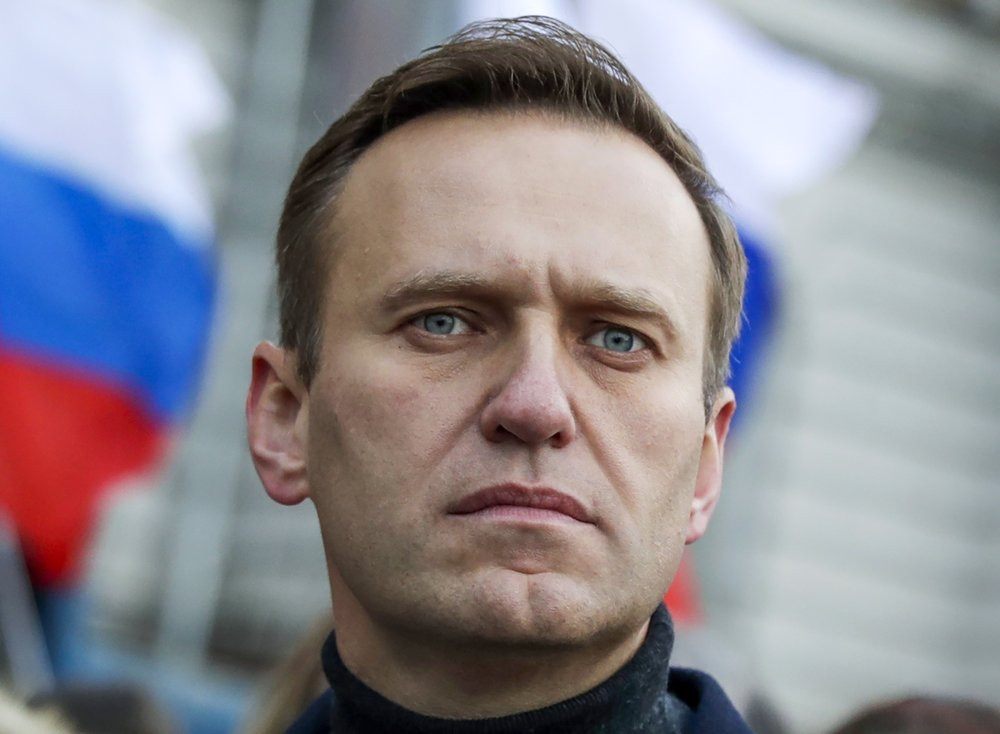Russian President Vladimir Putin said early Monday that he supported an idea to release opposition leader Alexei Navalny in a prisoner exchange just days before the man who was his biggest foe died.
In his first comments to address Navalny’s death, Putin said of the dissident’s demise: “It happens. There is nothing you can do about it. It’s life.”
The remarks were unusual in that he repeatedly referenced Navalny by his name for the first time in years — and that they came at a late-night news conference as results poured in from a presidential election that is certain to extend his rule.
Early returns showed him leading with over 87% of the votes in a race with no competition, after years of ruthlessly suppressing the opposition and crippling independent media.
Navalny’s allies last month also said that talks with Russian and Western officials about a prisoner swap involving Navalny were underway. The politician’s longtime associate Maria Pevchikh said the talks were in their final stages just days before the Kremlin critic’s sudden and unexplained death in an Arctic penal colony.
She accused Putin of “getting rid of” Navalny in order not to exchange him, but offered no evidence to back her claims, and they could not be independently confirmed.
Putin said Monday, also without offering any evidence, that several days before Navalny’s death, “certain colleagues, not from the (presidential) administration” told him about “an idea to exchange Navalny for certain people held in penitentiary facilities in western countries.” He said he supported the idea.
“Believe it or not, but the person talking to me didn’t even finish their sentence when I said: ‘I agree,’” Putin said in response to a question from a journalist about Navalny’s death. He added that his one condition was that Navalny wouldn’t return to Russia.
“But unfortunately, whatever happened, happened,” Putin said.
Navalny, 47, Russia’s best-known opposition politician, died last month while serving a 19-year sentence on extremism charges that he rejected as politically motivated. His allies, family members and Western officials blamed the death on the Kremlin, accusations it has rejected.
The politician’s associates said officials listed “natural causes” on paperwork Navalny’s mother was shown when she was trying to retrieve his body.
Navalny had been jailed since January 2021, when he returned to Moscow of his own accord after recuperating in Germany from nerve agent poisoning he blamed on the Kremlin. He was immediately arrested. The Kremlin has vehemently denied it was behind the poisoning.
Pevchikh claimed that there was a plan to swap Navalny and two U.S. citizens held in Russia for Vadim Krasikov. He was serving a life sentence in Germany for the 2019 killing in Berlin of Zelimkhan “Tornike” Khangoshvili, a 40-year-old Georgian citizen of Chechen descent. German judges said Krasikov acted on the orders of Russian authorities.
She didn’t identify the U.S. citizens that were supposedly part of the deal. There are several in custody in Russia, including Wall Street Journal reporter Evan Gershkovich, arrested on espionage charges, and Paul Whelan, a corporate security executive from Michigan, convicted of espionage and serving a long prison sentence. They and the U.S. government dispute the charges against them.
German officials have refused to comment when asked if there had been any effort by Russia to swap Krasikov.
Putin had earlier said that the Kremlin was open to negotiations on Gershkovich. He pointed to a man imprisoned in a “U.S.-allied country” for “liquidating a bandit” who had allegedly killed Russian soldiers during separatist fighting in Chechnya. Putin didn’t mention names but appeared to refer to Krasikov.

